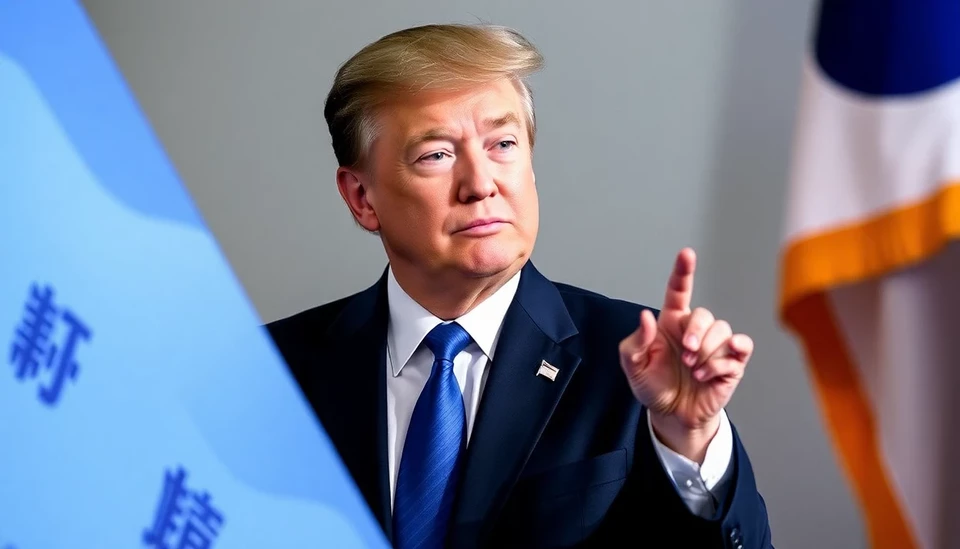
Former President Donald Trump’s return to political prominence is raising concerns among South Korean businesses that have heavily invested in the electric vehicle (EV) sector. With Trump’s vocal skepticism regarding electric vehicles and potential policy shifts if he wins the upcoming presidential election, South Korean firms face an uncertain future that could jeopardize an estimated $54 billion in investments.
Major players such as LG Energy Solution and SK On have committed substantial resources to establish battery manufacturing plants across the United States, spurred by incentives from the Biden administration designed to bolster the domestic EV supply chain. However, Trump's criticism of electric vehicles, claiming they threaten jobs in traditional automotive sectors, has sparked fears among these companies about the sustainability of their investments.
Since Trump's departure from office, he has maintained a firm stance against the push for renewable energy technologies, often echoing concerns that they are detrimental to American workers. His reelection campaign promises to cut back on federal support for renewable initiatives have intensified worries among South Korean manufacturers, who have banked on attracting U.S. customers through incentives and a favorable regulatory environment.
SK On, a subsidiary of SK Group, has been particularly active in securing partnerships to develop a network of battery plants in the U.S. Their strategies align with the current administration’s goals but face potential upheaval should Trump's policy reforms gain traction. The South Korean government remains hopeful that their companies can overcome Trump’s opposition, as the nation looks to solidify its role in the global EV market.
In light of these developments, South Korean firms are strategizing to mitigate risks. This includes diversifying investments across various technologies, exploring collaborations with domestic firms, and enhancing lobbying efforts to protect their interests in America regardless of political shifts. Industry experts suggest that the Biden administration's focus on climate and energy solutions may remain intact, but uncertainty surrounding Trump's policies creates an environment of unpredictability for foreign investors.
As the political landscape evolves, South Korean businesses await the outcome of upcoming elections, understanding that Trump's potential return to office could reshape the dynamics of the U.S. EV market significantly. For now, companies are keeping a close watch on Trump's rhetoric and possible future actions to formulate responsive strategies that can navigate the tumultuous waters of international investment.
In conclusion, while South Korea’s investment in the EV sector represents a bold bid for future growth and innovation, it hangs in the balance amid concerns over policy direction, particularly with the looming shadow of Trump's staunch anti-EV sentiments. The implications for these multi-billion dollar investments highlight the intricacies of global industry as political forces continue to exert their influence.
#Trump #KoreanInvestments #ElectricVehicles #SKOn #LGEnergy #USPolitics #EVMarket #BidenAdministration #InvestmentRisk
Author: Victoria Adams




